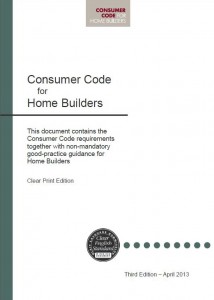 The quality of new homes is getting worse as housebuilders show contempt for their customers by refusing to tackle the issues in their poor quality, defect-ridden new homes.
The quality of new homes is getting worse as housebuilders show contempt for their customers by refusing to tackle the issues in their poor quality, defect-ridden new homes.
This government has bent over backwards to help the house building industry, with taxpayer-funded subsidies such as the controversial Help to Buy equity scheme (£791million loaned for 19,394 new homes to 31 March 2014) and the ongoing relaxation of planning rules. So why are Britain’s housebuilders not doing anything to improve the dire quality of the new homes they are building?
The quality of new homes is getting worse as this recent article in the Daily Mail demonstrates; caused by a combination of a lack of skilled tradesmen, insufficient construction time, poor site management and the builder’s CEOs only caring about profit and numbers (and their bonuses!) – quality doesn’t come first (if it ever did), in fact it doesn’t even come fourth! To add insult to injury, housebuilders are even routinely refusing to take any action to fix defects that unlucky buyers discover in their new homes once the initial excitement wears off, coming up with “it’s within tolerance” and other excuses in an attempt to justify not fixing defects in their new homes.
The sad fact is that the quality of new homes and many housebuilder’s reputations are now so bad, an increasing number of new home buyers are employing professional snagging inspectors to independently check for defects in their new homes before they move in. But yet again, housebuilders often refuse point blank to allow access to the new home for buyer’s inspectors until after legal completion, as a matter of “company policy”. This means that any issues identified cannot be fixed prior to occupation and even if the builder does attend to them later, (a big if!) it causes maximum inconvenience for the consumer taking time off work, moving furniture, mess etc.










